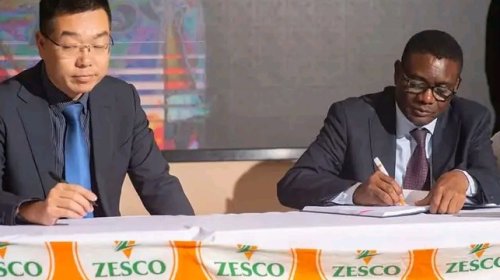Zambia chamber of mines says double taxation hurting investment
Zambia should treat mineral royalty payments as a deductible expense in order to avoid double taxation and attract investment, the Zambia Chamber of Mines said on Monday.
Since 2019, mineral royalty payments have not been treated as a deductible expense when calculating corporate income tax and that provision was kept unchanged in the government’s annual budget unveiled on Friday.
“The effect of this is that mining companies end up being taxed on income that has already been paid over as a royalty – a situation referred to as double taxation,” the chamber said in a statement.
Reversing that provision could unlock a series of investment approvals and kick-start economic recovery, it said.
The chamber welcomed the withdrawal of duty on ore imports, announced in the budget on Friday, and acknowledged the sensitivity of the issue, given the initiation of negotiations to suspend Zambia’s bond repayments.
Africa’s No. 2 copper producer has asked creditors to defer interest payments on three outstanding dollar-denominated bonds amid a crisis, which has driven spending and hit copper earnings.
Zambia had been wrestling with growing public debt before the coronavirus outbreak forced lockdowns around the world and cut demand for raw materials.
The Chamber of Mines noted that a good proportion of the Eurobond holders also hold shares in mining and prospecting in Zambia.
Such a change in the tax regime would help spur growth in the mining sector and help bondholders mitigate their income loss during the proposed moratorium on coupon payments, the chamber said.
![]()





